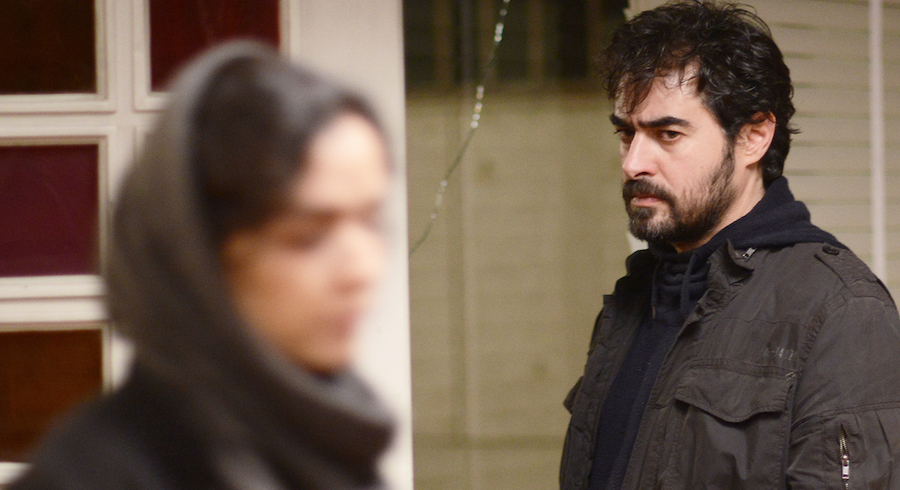‘The Salesman’ In the films of Iran’s Asghar Farhadi, normal life slowly turns into the stuff of great (that is, deeply unpleasant and unnerving) drama. For its first half-hour-and-change, the latest from the maker of “A Separation” and “The Past” plays like a simple observational drama. We meet Emad (Shahab Hosseini) and Rana (Taraneh Alidoosti), a married couple in Tehran. He teaches by day; they’re both stage actors by night. They’re laboring over a production of “Death of a Salesman” when their apartment starts to crumble due to nearby construction — the kind of warning bell that, in Farhadi’s hands, seems writerly as well as realistic. It’s here where things get hairy: Emad and Rana luck into a recently vacated apartment, in which the previous tenant has left their belongings, crammed into a single room. She ditched it but fast, and people keep swinging by, surprised to discover new inhabitants. One night, Emad returns to find Rana bloody and beaten. Their predecessor, as it turns out, was a sex worker, and one of her clients had paid a visit that went awry. Rana is fine but traumatized, prompting Emad to go from arty type to vigilante, skulking about for clues, ready to bring some form of justice, whatever that may be. RELATED: Interview: Edgar Ramirez on “Gold” and how journalists must stay strong in the Trump era Emad never goes full Charles Bronson, but his descent into singleminded avenger is slow and disturbing, as though the incident had unlocked parts of his personality he didn’t know he had. He’s spent a lifetime avoiding masculine stereotypes, but suddenly he’s treating Rana like a meddling police chief. When she tells him to let it go, it only makes him more driven. It’s as though he was the one assaulted, not her; it’s as though some creep had destroyed part of his property, not hurt the woman he usually sees as his equal. Emad suddenly unleashes the worst in macho behavior, just as the vacationing progressive men in Farhadi’s “About Elly” reveal their regressive selves in the face of a calamity they, too, can’t control. Not that Farhadi is judging Emad. The filmmaker makes the kind of dramas that survive comparisons to the likes of Henrik Ibsen and Arthur Miller — ethical dilemmas that offer deep insights into the complexities of human behaavior. The reason “The Salesman” isn’t a play is that Farhadi is interested in realism. Cinema, unlike the stage, can seem naturalistic, even when the stakes are high. The organic way the story slowly emerges out of Emad and Rana’s day-to-day could only happen in film. For Emad and Rana, the incident is a leftfield burden, while for the viewer it’s like one movie gradually mutated into another. As sharp a dramatist as Farhadi is, he’s also an underrated visual stylist. His images don’t call attention to themselves; he never uses the camera to call attention to itself. He makes naturalism that’s ever so quietly invaded by outside forces. His actors look like they’re simply living their lives, as if the camera wasn’t even there. When things get rough, we’re as shocked as they are. And he has a way with spaces. Most of “The Salesman” is set indoors, in apartments that never take on the feel of a comfortable home. Emad and Rana haven’t even settled into their new digs before tragedy strikes; after the incident, it feels poisoned, claustrophobic, unsafe. By the end, when Emad lures the assailant there for a pow-wow that escalates (if not in the way one would expect), it feels like an underground compound in a black site. You don’t notice how scary, how disturbing and how human “The Salesman” is until it’s suddenly in the thick of it, when the everyday has turned into a waking nightmare.
Director: Asghar Farhadi
Stars: Shahab Hosseini, Taraneh Alidoosti
Rating: NR
4 (out of 5) Globes
‘The Salesman’ re-confirms that Asghar Farhadi is a master

Cohen Media Group
Follow Matt Prigge on Twitter @mattprigge
















